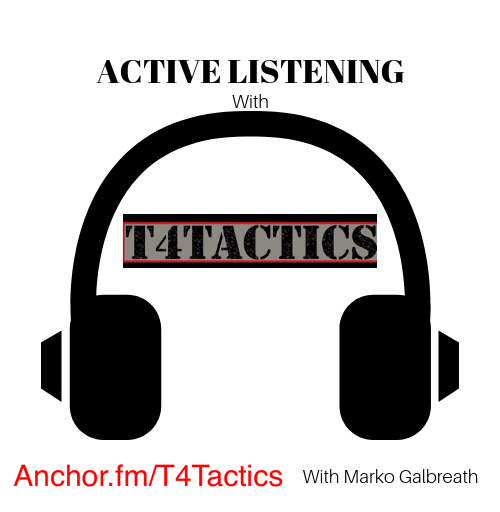Situational Awareness - Easy as ABC!
- Jan 21, 2020
- 3 min read
Situational awareness is a skill that can easily be cultivated by anyone. It’s not just something that members of police, military or executive security agents use.
As a retired police Sergeant of 22 years from the Daytona Beach, FL area, situational awareness was critical during my assignments in the Special Investigations Unit, an undercover narcotics agent, as the Hostage Negotiations Team leader, the SWAT team and finally as the Motorcycle Unit Supervisor.
I find now after being retired that it’s just as important now. Regardless of what I do and where I go, I always practice situational awareness.
I currently travel the United States teaching Active Shooter response training to businesses, churches, schools and all types of manufacturing facilities. I’ve completed numerous courses and hundreds personal interviews on active shooter events. Many attacks could have been avoided if situational awareness had been practiced. In fact, as a robbery and sexual assault investigator, I found many of the attacks could have been avoided if situational awareness had been learned.
Basically, situational awareness is just this:
A good police officer will learn the parking lot of the local convenient store. Learn the clerk’s cars and the parking lot. At 3am, that police officer can drive by and just at a glance notice any anomalies. For instance, someone parked alongside the back of the store or behind the dumpster. This could be nothing or it could also be the set up for an armed robbery or theft.
A pilot prior to taking off will scan the control panel of the aircraft. From experience, a low gauge, a red flag indicator would be easy to see. This is because the pilot has developed the situational awareness of the entire control panel.
A young lady working at the mall is leaving late one evening after her shift. Her eyes are up, not looking at her phone. She is scanning the parking lot and the route to her car. She is aware or her surroundings, is walking with a purpose and is focused on what is and is not occurring in the parking lot. She is practicing good situational awareness. If she notices something that doesn’t look right, she can alter her course or take action to avoid the threat.
As an undercover narcotics officer it was many times my task to go into unfamiliar areas and purchase narcotics during “controlled purchases.” Walking in to the area I would definitely want to be aware of my surroundings. Streets, cars, alleys, sidewalks, cars, and people. I would watch hands and body language. This is situational awareness.
Some think situational awareness is too hard and cannot be learned. Some think it’s not for them.
Think about shopping at your local grocery store. You’re walking through the produce section wanting to buy bananas. Out of the corner of your eye you see a sign advertising an amazing sale on Honey Crips apples. That “corner of your eye” is situational awareness. We all have it and use it daily, we just need to know how to fine tune it.
To start your situational awareness journey, try this the next time you’re out to dinner with family and or friends. After dinner and in the parking lot or in your car for the drive home, ask questions to the group. Where was the child sitting that needed the booster seat? Where was the cash register? Where were the exits and the kitchen? This is a great game to teach your kids situational awareness. Take turns playing the game at the mall, the park, out to eat and at school sporting events. Soon, your child will have the situational awareness skill needed to recognize a threat and remove themselves from it.
Practice situational awareness. It may just save your life one day.
Marko Galbreath
Owner/Instructor
T4Tactics, LLC





This article explains situational awareness in a very simple and practical way, making the A-B approach easy to understand and apply in everyday life. The focus on observing your surroundings, recognizing patterns, and making quick decisions is highly relevant in both personal and professional situations. It reminds me of how embroidery digitizing software works—you need clarity, precision, and the ability to notice small details to achieve accurate results. Missing even a minor element can affect the final outcome. Overall, the piece encourages proactive thinking, better focus, and improved decision-making, which are essential skills for safety, productivity, and long-term success in any field.
¡Hola a todos!
Quería compartir mi experiencia con la sección de boxeo en vivo de Jugabet: https://jugabet.cl/es/boxing/live. Aquí pueden apostar en tiempo real durante las peleas más emocionantes, con cuotas actualizadas al momento. La plataforma es fácil de usar y la acción no para. ¿Alguien más lo usa? ¿Qué peleas están siguiendo?
Looking for reliable R Studio Assignment Help? MyAssignmentHelp.com is your go-to solution. Our expert team provides comprehensive support for all R Studio assignments, ensuring you grasp complex statistical and graphical techniques with ease. Whether it's data analysis, programming, or troubleshooting, we offer customized solutions tailored to your academic needs. With 24/7 availability, timely delivery, and a commitment to quality, MyAssignmentHelp.com guarantees top-notch assistance. Get the grades you deserve with our professional R Studio assignment help. Contact us today to excel in your academic journey!